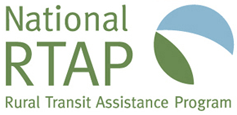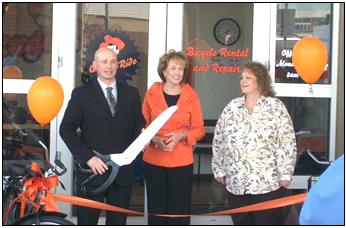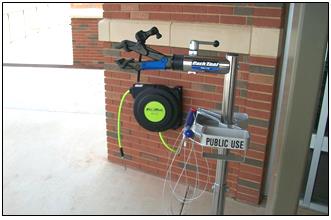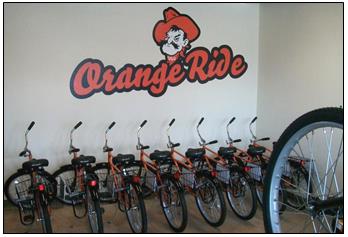In March 2013, Oklahoma State University's Department of Parking and Transit Services launched OrangeRide; a new bicycle rental and repair program to promote convenient and affordable transportation on campus and throughout Stillwater (population 48,134 per 2021 Census) that complements the public transit system. It has been a huge success – including a waitlist for rentals for the fall.
The OrangeRide bike sharing program consists of bright orange bikes that can be rented by anyone (students, faculty, staff, and the general public) for $2/day, $8/week or $60/two semesters. The price has not gone up from 2013 to 2023! Each rental comes with a bike lock and maintenance, and the renter is required to take a 10-minute online course. If a bike is stolen or seriously damaged, the renter is charged the replacement costs. Advertising space is available on the side of the bikes to offset some of the costs of the program, in order to keep the rental rates as low as possible.





